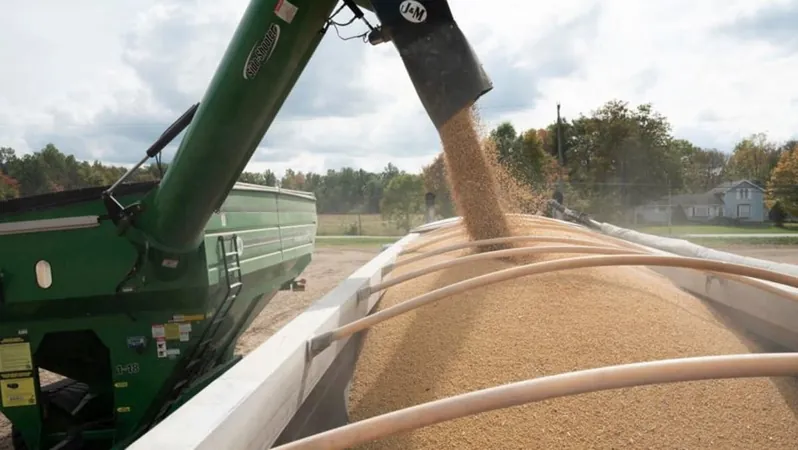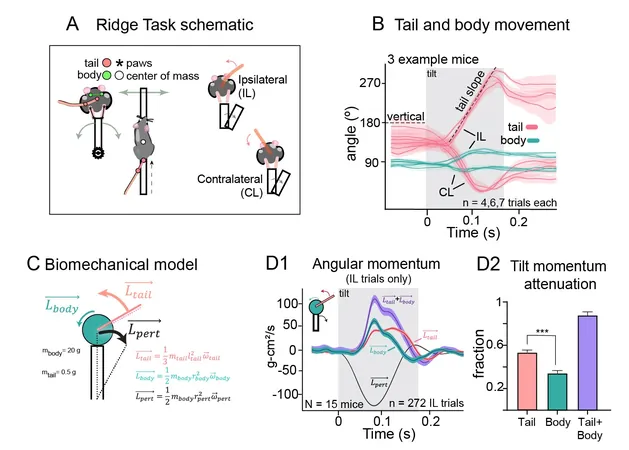
US Farmers Prepare for Uncertain Future as Trade War Fears Return Under Trump Administration
2024-11-07
Author: Yu
US Farmers Prepare for Uncertain Future as Trade War Fears Return Under Trump Administration
SHANGHAI – As the Trump administration takes shape, US agricultural producers are bracing themselves for a potential new wave of trade tensions with China that could severely impact exports of farm goods. With a looming risk of fresh tariffs, producers of all kinds—ranging from almonds to soybeans—are attending the China International Import Expo (CIIE) this week, a significant platform for fostering trade with Chinese officials and promoting their products.
The shadow of the 2018 trade war still looms large over the agricultural sector. Back then, China retaliated against US tariffs with its own sweeping duties, imposing tariffs as high as 25 percent on a variety of American agricultural imports including soybeans and sorghum. The result was a sharp decline in exports, with agricultural shipments to China plummeting 24 percent last year, totaling just $29.1 billion, according to the US Department of Agriculture (USDA).
Despite the current adversities, industry representatives convey a sense of preparedness for any renewed disruptions. Jason Hafemeister, USDA’s Acting Deputy Under Secretary for Trade and Foreign Agricultural Services, emphasized the importance of diversifying markets to cushion the blow of potential trade restrictions. “It's a concern,” he stated. “We’ve recognized the potential for disruption in US-China trade, and efforts have focused on diversifying markets.”
Former President Donald Trump has floated the idea of imposing a staggering 60 percent tariff on Chinese goods, raising fears of retaliatory measures targeting US agricultural exports. This prospect has left many in the industry anxious but also underscores the fundamental dependency of China on US agricultural products. “They need food, we produce a lot of food… We hope that things don’t spin out of control and that things stay proportionate,” Hafemeister continued.
Interestingly, US farmers are looking beyond just China. As trade war uncertainties linger, growers are intensifying efforts to tap into markets in Southeast Asia, Africa, and India, focusing not only on bulk exports but also on value-added products that could offer higher returns. However, Ryan LeGrand, CEO of the US Grains Council, lamented that replacing China’s vast market is no easy feat. “It’s difficult to find another market that moves the needle, so you have to find many markets to even come close to that,” he noted.
For farmers like Verity Ulibarri, a sorghum grower in New Mexico and chair of the US Grains Council, the experience gained from the previous trade turmoil has equipped them to better navigate potential future challenges. “As we look to the future, having that experience gives us more of a feeling of how to navigate that. We’re not scared; we know there are risks,” she summarized.
Meanwhile, markets reacted to Trump's electoral victory with notable volatility. China's soymeal and rapeseed meal future contracts surged on the news, showcasing the anxiety surrounding agricultural trade prospects.
Many business leaders, including Allan Garbor, chair of the AmCham Shanghai business chamber, believe that critical areas such as food and agriculture should remain insulated from aggressive trade tactics. “It looks like almost everything is on the table,” Garbor said, expressing hope that the agricultural sector could escape from the political crossfire that often accompanies trade discussions.
As the agriculture community holds its breath, the stakes remain incredibly high. The outcome of US-China trade relations could not only reshape farming practices in America but also redefine global food supply chains—a situation that could have far-reaching effects for consumers worldwide.



 Brasil (PT)
Brasil (PT)
 Canada (EN)
Canada (EN)
 Chile (ES)
Chile (ES)
 España (ES)
España (ES)
 France (FR)
France (FR)
 Hong Kong (EN)
Hong Kong (EN)
 Italia (IT)
Italia (IT)
 日本 (JA)
日本 (JA)
 Magyarország (HU)
Magyarország (HU)
 Norge (NO)
Norge (NO)
 Polska (PL)
Polska (PL)
 Schweiz (DE)
Schweiz (DE)
 Singapore (EN)
Singapore (EN)
 Sverige (SV)
Sverige (SV)
 Suomi (FI)
Suomi (FI)
 Türkiye (TR)
Türkiye (TR)